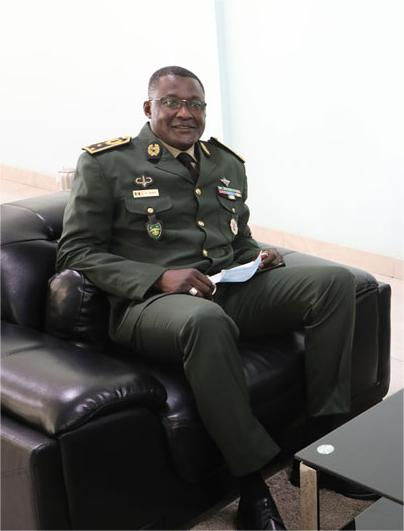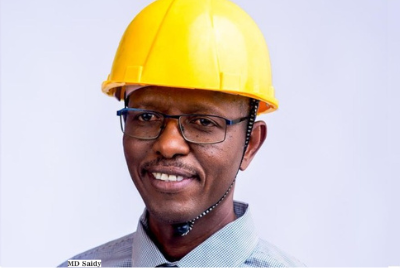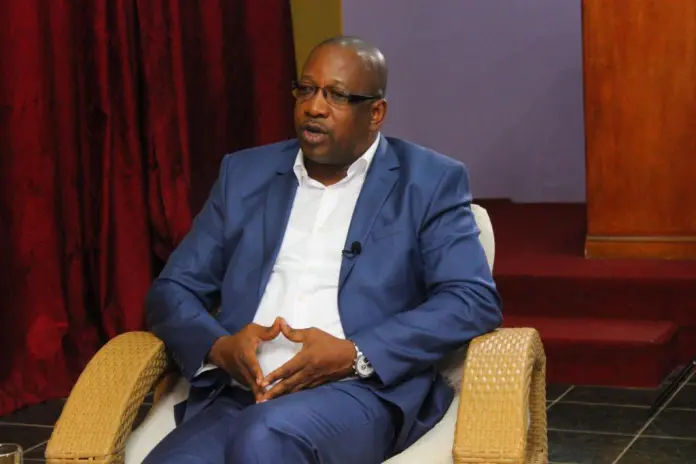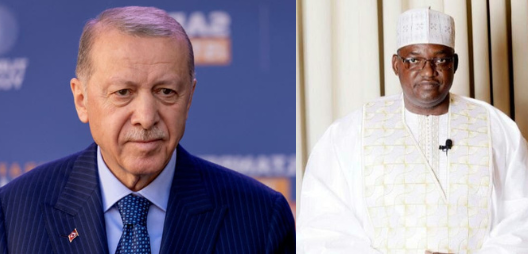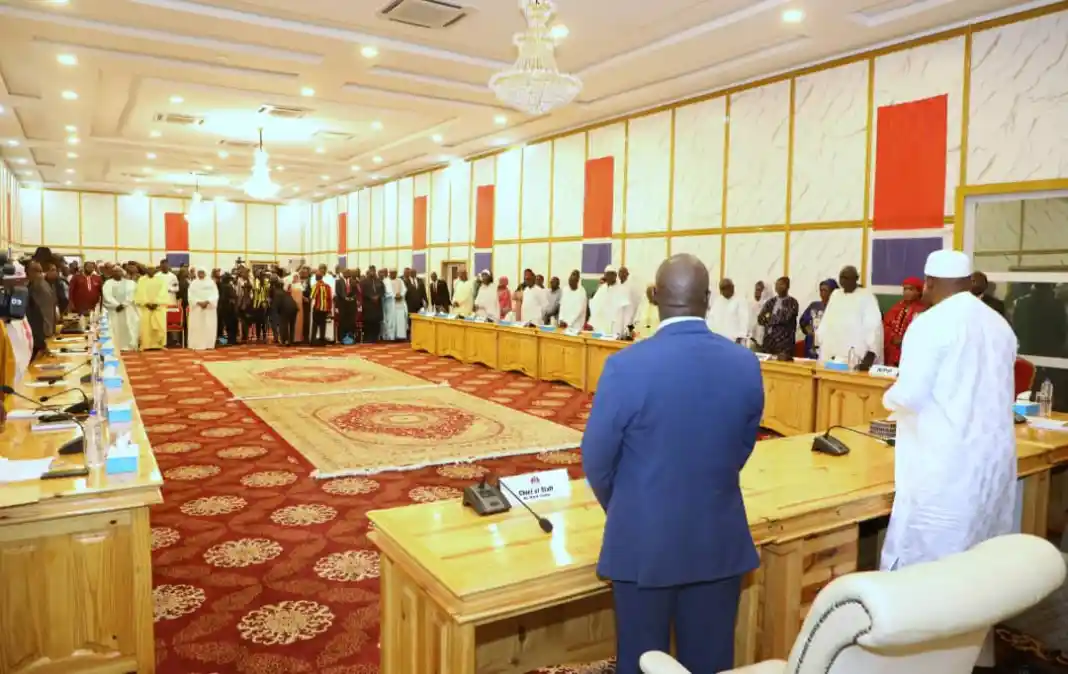
TAT Commentary by Alfsoninke
On my TV screen, it was dubbed “National Dialogue with the Political Parties.” “President Barrow Hosts First Dialogue With Political Parties”
I tuned in to the QTV live broadcast of the Dialogue with Political Parties hosted by State House in Banjul on Monday morning.
This was just as the NCP representative was speaking. I stayed tuned and listened to the PAP leader, the DA and UDP representatives, and then the former VP Fatoumatta Tambajang.
I would have got what I missed since the meeting started in the morning, including the opening statement of the President etc. And, this would be so had the “rapporteur” made a decent job of the assignment.
But who – knowing what is expected of a rapporteur for such gatherings – having listened to the report of the rapporteur would say it was a job well done; who would say that what we all heard was a proper “summary” of what was said and heard during the hours-long meeting?
Again, I’m saying that people like me who tuned in late would have got the essence of everything said by all who delivered speeches at the forum just by listening to a proper “rapporteur’s report” when it was delivered.
 President Barrow
President BarrowUnfortunately, that was not the case; and now in order to hear and see what we missed we will have to listen to the Youtube video.
However, it was important to get a proper rapporteur’s report compiled simply because this is an official record of what transpired.
And, it is important for the record; for the files at the Office of the President and all stakeholders etc; indeed, for the archives and for the history of The Gambia. This is a vital point!
The report was supposed to be the foundational building blocks of other stages of the National Dialogue. And, so if that is the sort of “rapporteur’s report” we will be getting, then at the end of the day we will be receiving not the expressed views and concerns of participants and stakeholders, but the thoughts and ideas of the rapporteur and his “summary” of what he feels people said or should say.
So let’s beware, for the rapporteur’s report should serve as a reference point, and if it’s not done properly then this could adversely affect people’s effective participation in other stages of the exercise, and will show in the final/outcome document of the National Dialogue.
Another two other observations must be made. These are the obvious role of steering the process, as seen in the tasks given to civil society actors at Monday’s forum.
Also on the suggestion that Coalition 2016 leaders be involved in the ongoing dialogue.
Going by some of the statements heard, including from the moderator – it would seemed that convening and conducting this particular “dialogue with political parties” was not well thought-through and thought out.
This is because we see roles given and being played in this exercise by persons active in the CSO/NGO community and, we think, as the name clearly states, only members of the political class should be handling and spearheading such work.
We believe they are the ones to exclusively engage, and be tasked with managing this exercise; and, as some speakers suggested, ideally the Inter-party Committee (IPC) should take the lead role here.
Members of the CSO/NGO class should only participate as monitors and observers of the process, but not as active participants or its drivers.
We hold that this is not there place, and that they must be careful lest they become ensconced with the political class – as happens in Senegal – with very negative consequences for Gambian society and the country.
When you see how in Senegal the members of civil society including the press get entangled with the political class, especially the ruling elite, then you realize that there is very little in terms of good or best practice to learn from our neighboring country.
As for the suggestion that the Coalition 2026 members come back and be involved, it means that not enough lessons were learned by all concerned from Barrows turning his back on the Coalition Agreement, including the promised 3 (three) years in office!
Thus, Barrow after all what happened in the political arena in particular, in these past eight plus years he has been in power, still retains some people’s full confidence as a credible and trustworthy partner in Gambian politics. This is proof that people do definitely have a very short memory!
Of course, it is possible that Barrow craves to be a changed person and would want to leave the scene – which we believe he is contemplating given the prevailing local and international atmosphere – and to be remembered as an honest and reliable Gambian politician.
Yes, Barrow thinks (believes?) – well, he said so in his speech to close the forum on Monday – that politics “is a game” – because he has been told so by his local advisers – and foreign mentors across the border from whom he may be imbibing very bad ideas and practices.
But now this project appears to show that he wants to be well-regarded among members of the political class – both old and new – and Gambians, in general, as a dependable and predictable partner.
Thus, it is our opinion that this National Dialogue – should be held exclusively with and for participation by members of the political class.
State House may go further to follow up with a National Dialogue – with Farmers, with Workers, with Women, with Youths and so on.
However, this first “National Dialogue with Political Parties” we feel should have on its menu today’s burning political issues to be addressed by the participants – such as for example the ongoing central government’s unhealthy confrontations with area councils.
Now, on this matter, It is relevant to remind the central government that the new National Development Plan (NDP) launched last week has a “governance” pillar.
In our view, seeing the frosty relations between the two levels, the government must take a hard look at itself considering how it treats/relates with the municipal/area councils, if it wants to have a stainless good governance record on this score.
Other issues that come to mind for the menu are the age and the mandate of the current IEC chairman, what appeared as the IEC’s arbitrary disqualification of applicants in the 2021 presidential election some of which the courts faulted – and please note that this is partly responsible for the present explosive situation in Senegal!
Also on the menu of the National Dialogue with and of political parties, we believe, should be the delayed re-demarcation of the constituency boundaries, the IPC consultations on a new national constitution being promoted by the Ministry of Justice in collaboration with International IDEA, and so on. The list is very long!
Finally, what is the cost to the public purse of this latest project of Adama Barrow’s government. Was it budgeted for in 2024; and will it be another exercise costing millions, especially with talk of possibly “institutionalizing” it?
Yes, what are the opportunity costs? Will it be another opportunity for spending and wasting scarce public resources?
We are watching; time will tell.
